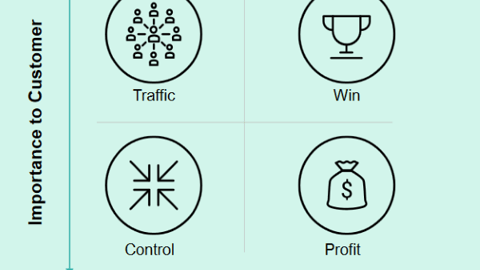Grocery Consumers Reining in Holiday Spending
According to the sixth wave of customer data science company dunnhumby's Consumer Pulse Survey, a study of the impact of COVID-19 on customer behavior and attitudes in 21 countries, U.S. consumers plan on spending 25% less on food and 36% less on gifts this year, compared with 2019. Ten percent even said that they wouldn’t be purchasing any gifts. This curtailed spending is happening as consumers are increasingly preoccupied by the coronavirus, the economy, their personal finances and the rising cost of food.
Americans reached their highest level of worry about the virus — 32% — since the onset of the pandemic, and ranked as the sixth-most-concerned country worldwide. The U.S. score on the dunnhumby Worry Index, a measure of how concerned consumers are about COVID-19, rose from a study low of 24% in September (Wave 5) and May (Wave 3) to climb eight percentile points in November, coinciding with the latest escalation of the public-health crisis.
“Worry is back with a vengeance as consumers are being hit with multiple intersecting crises, at a time typically spent gathering with family and friends,” observed Grant Steadman, president of North America for Chicago-based dunnhumby. “And the majority of consumers report that both their personal finances and the country’s economy are in poor shape while they are being hit by rising food prices. To best meet consumer needs through the holidays and into the New Year, retailers should focus on offering good value and base prices, with solid, in-store safety measures [and] fast checkouts, and deliver a positive, personalized online shopping experience.”
Key findings from the study include:
- One-third of all holiday food shopping will occur online, a continuation of the adoption of grocery e-commerce that began with the onset of the pandemic. Sixty-seven percent of consumers plan to buy their Christmas food in-store, while the remaining third plan to purchase their food online (67%), at restaurants (28%) and at other destinations (17%). Online purchasing was seen even more prominently for gift buying, with 44% saying they’ll buy more gifts online than they did last year. Personal concerns regarding COVID-19 (47%) were most often given as the main issue affecting holiday planning, followed by personal finances (44%).
- The economic pressures expressed by consumers in the last wave of the study, in September, have continued to increase, with 54% noting that their finances are in bad shape, compared with 49% in September and 45% in March. Seventy percent of those surveyed also felt the country’s economy is shaky. As a result, consumers continue to seek value via lower prices and/or promotions. Forty-two percent of shoppers said they’re spending more on food.
- Faith in the U.S. government’s ability to deal with the virus is at an all-time low (18%), plunging 19 points since the pandemic began, and one of the three lowest globally. Trust in stores has fallen 10 points since March, with just 47% of consumers noting that stores are doing a good job dealing with the pandemic.
- Despite their higher levels of worry, fewer people in the United States are willing to take actions to fight the virus. From September, there was a slight dip in respondents regularly wearing masks and washing hands. Social distancing is on the rise, however, with almost 70% practicing it. Further, 74% of U.S. consumers are highly pessimistic about restrictions, an 11-point increase from September and the fifth highest in the world. Perhaps most notably, just 40% of consumers support restaurant and bar closings, versus 69% approving of such closures back in March.
- With the escalation of COVID-19 during the study’s sixth wave, consumers are once more making fewer trips to the store. The number of weekly shopping trips declined to 4.6, lower than levels seen in April, while online shopping accounted for 29% of the weekly trips, roughly in line with the global average (27%) for online shopping. Following a steady decrease in previous waves of the study, 25% of shoppers surveyed are increasingly worried about their safety while shopping.
For this study, dunnhumby surveyed more than 42,000 respondents online in Asia (Australia, China, South Korea, Malaysia, Thailand), Europe (Czechia, Denmark, France, Germany, Hungary, Italy, Norway, Poland, Slovakia, Spain, United Kingdom), Latin America (Brazil, Chile, Colombia) and North America (United States, Mexico). The online interviews were conducted for the first wave March 29 -April 1; second wave, April 11-14; third wave, May 27-31; fourth wave, July 9-12 in the United States, Canada and Mexico only; fifth wave, Aug. 28-Sept. 3; and sixth wave, Nov. 20-5. About 400 individuals were interviewed in each country for each wave of the study, and respondents were roughly 60% female, 40% male.
The dunnhumby Customer Data Science Platform offers a unique mix of technology, software and consulting to help businesses boost revenue and profits by delivering exceptional experiences for their customers, in-store, offline and online.






